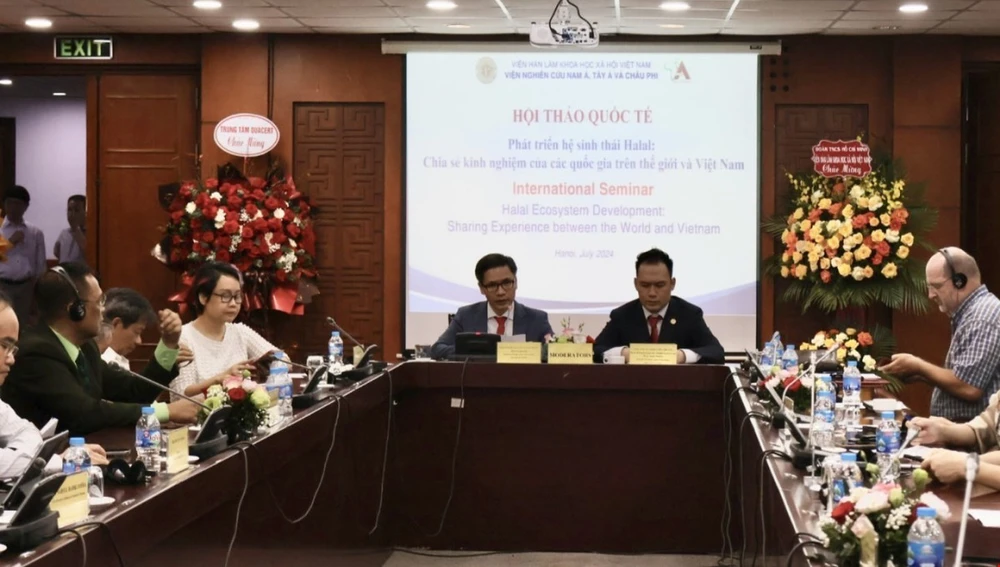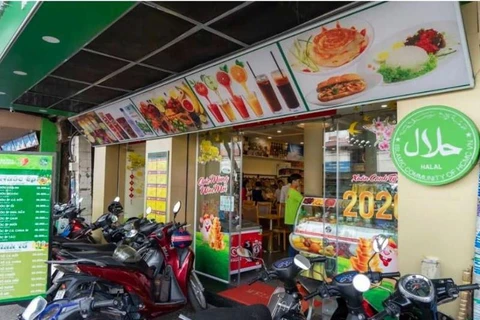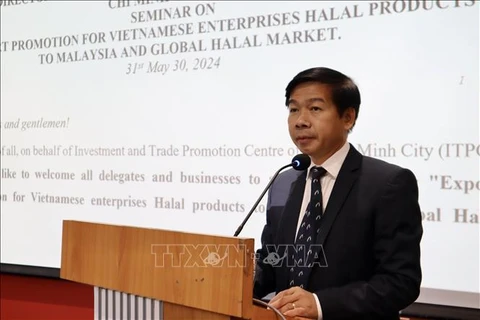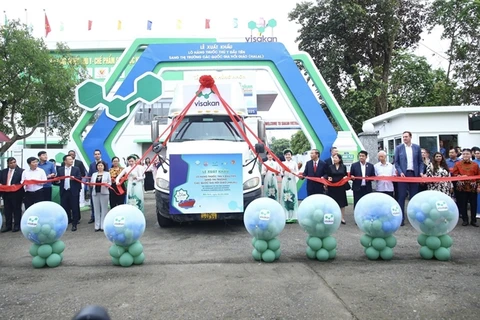
Hanoi (VNA) – Domestic and foreign scholars on July 5 exchanged experience in developing Halal ecosystems in countries at an international workshop held by the Vietnam Academy of Social Sciences (VAAS) in Hanoi.
Speaking at the event, VAAS President Dr. Phan Chi Hieu said as Vietnam is promoting cooperation with countries in South Asia, West Asia and Africa, there is an increasing need for research and policy consultations.
In addition, the Halal market with an estimated population of 2.18 billion by 2030 is expected to hit 3 trillion USD by 2025, Hieu said, adding that the workshop is part of activities to implement the project on strengthening international cooperation to build and develop Vietnam's Halal industry until 2030.
Participants discussed opportunities for Vietnam in exporting Halal products and attracting Muslim tourists, contributing to promoting cooperation between Vietnam and 57 countries of the Organisation of Islamic Cooperation (OIC) and others around the world.
They also evaluated Vietnam’s ability to access the Halal market globally.
Associate Professor. Dr. Dinh Cong Hoang, head of the Middle East and West Asia Studies Department under the VAAS, said not many Vietnamese people and businesses have good knowledge about Halal products. Furthermore, the Halal certification process in Vietnam is still complicated and not harmonised with international standards.
Vietnamese businesses have to cover high costs when investing in production lines, specialised equipment, and safe raw materials to make standardised Halal products.
Moreover, Vietnam still lacks a full Halal ecosystem, covering production, services, infrastructure and Government’s support, to develop a sustainable Halal industry, he said.
He suggested the country establish a Halal certification authority and implement relevant activities, while seeking agreements with Muslim countries on mutual recognition.
It needs Halal supply and value chains and ecosystem, as well as mechanisms to attract both foreign and domestic investors in priority areas such as Halal food, agricultural products, cosmetics, tourism, garments, and footwear.
Within the framework of the workshop, the VAAS launched the Institute of South Asian, West Asian and African Studies (ISAWAAS), which has functions of studying basic issues in economy, development, politics - security, culture - society, and science – education, and providing consultations for the Party and State in making policies relating to South Asia, West Asia and Africa./.






















